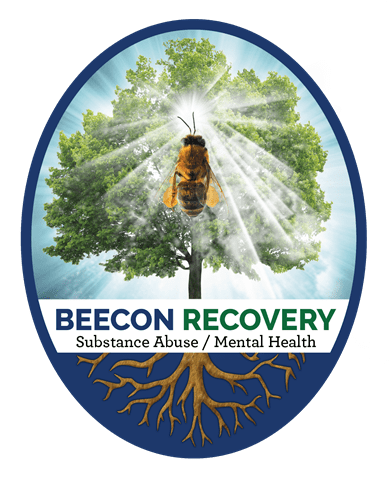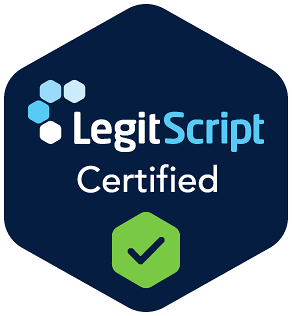Understanding Neurofeedback Therapy
What is Neurofeedback Therapy?
Neurofeedback therapy is an innovative approach to mental health and addiction recovery that focuses on training individuals to regulate their brain activity. It utilizes real-time feedback from brainwave activity to help clients develop greater awareness of their neurological functions. This technique allows participants to learn how to train their brains toward more optimal functioning, which can be particularly beneficial for those facing substance use disorders and mental health challenges. By understanding what neurofeedback therapy is and how it works, we can appreciate its value in recovery.
How Neurofeedback Therapy Works
During a neurofeedback session, sensors are placed on the scalp to measure brainwave activity. The collected data is then displayed in real-time on a computer screen, allowing individuals to see their brain’s state as they engage in various tasks. This feedback process allows clients to identify and modify unhealthy brainwave patterns.
Neurofeedback utilizes four primary brainwave types, each associated with specific mental states and functions. Below is a table outlining these brainwave types and their roles:
| Brainwave Type | Frequency (Hz) | Associated State |
|---|---|---|
| Delta | 0.5 – 4 | Deep sleep, healing |
| Theta | 4 – 8 | Light sleep, creativity, intuition |
| Alpha | 8 – 12 | Relaxation, calmness, learning |
| Beta | 12 – 30 | Active thinking, focus, anxiety |
Through repeated training sessions, individuals learn to enhance desirable brainwave patterns while reducing less favorable ones. This process ultimately promotes improved emotional regulation, cognitive function, and resilience against cravings and stressors. For those undergoing recovery, this can be a significant tool in maintaining sobriety and mental health.
At Beecon Recovery, we emphasize the incorporation of neurofeedback therapy as part of our comprehensive treatment plan. For those interested in additional methods to support recovery, we also explore topics such as the role of nutrition in supporting mental health and sobriety and combining traditional and holistic therapies for comprehensive recovery.
Role of Neurofeedback Therapy in Addiction Recovery
Neurofeedback therapy plays a vital role in supporting individuals on their journey to recovery. By addressing underlying issues and promoting regulation of brain function, we can enhance the overall effectiveness of addiction treatment.
Addressing Underlying Issues
Many individuals struggle with substance use disorders due to complex emotional and psychological factors. Neurofeedback therapy helps us identify and target these underlying issues by allowing individuals to visualize their brain activity. This real-time feedback can reveal dysfunction in brainwave patterns that may be contributing to addiction. By recognizing these patterns, we can work towards altering them through targeted sessions, supporting long-term recovery.
Key issues that neurofeedback therapy addresses include:
| Underlying Issue | Description |
|---|---|
| Anxiety | Heightened anxiety can lead individuals to seek substances for relief. |
| Trauma | Unresolved trauma often contributes to substance use as a coping mechanism. |
| Depression | Feelings of hopelessness can drive individuals toward substance abuse. |
Neurofeedback aims to create a balance in brain function, which can alleviate these issues. For our patients, this can mean a deeper understanding of their mental health and improved coping strategies.
Promoting Brain Function Regulation
Effective addiction recovery requires more than just addressing emotional pain; it also necessitates the promotion of healthy brain function. Neurofeedback therapy aids in regulating brain activity by training individuals to consciously control their brainwave patterns. Through these sessions, patients learn how to stabilize their emotional responses and enhance cognitive function.
The benefits of this regulation include:
| Brain Function Benefit | Description |
|---|---|
| Improved Focus | Enhanced concentration can aid in decision-making and reduce cravings. |
| Emotional Stability | Better emotional regulation minimizes the impact of triggers. |
| Enhanced Cognitive Clarity | Clearer thinking supports problem-solving skills and self-control. |
As we integrate neurofeedback therapy into our treatment plans, we can significantly improve our clients’ ability to manage their addiction and its related symptoms. This approach complements our other methods, such as amino acid therapy: rebuilding brain chemistry after addiction and the role of nutrition in supporting mental health and sobriety, reinforcing our commitment to holistic recovery strategies.
Incorporating neurofeedback therapy allows us to provide comprehensive support, optimizing recovery outcomes for our patients. We believe that addressing both the mind and body is essential for lasting transformation, aligning perfectly with our mission at Beecon Recovery in Utah.
Benefits of Neurofeedback Therapy
Neurofeedback therapy offers various advantages in the recovery journey from substance use disorders and mental health challenges. By addressing the brain’s electrical activity, this innovative therapy can provide significant benefits that support overall healing and well-being.
Reduction in Cravings
One of the primary benefits of neurofeedback therapy is its effectiveness in reducing cravings. Through real-time brainwave monitoring and training, individuals learn to self-regulate their brain activity. This process helps in diminishing the desire to engage in substance use. Research has shown that participants who undergo neurofeedback therapy report a notable decrease in cravings compared to traditional treatment methods.
| Study Participants | Craving Reduction (%) |
|---|---|
| Group A | 70% |
| Group B | 40% |
This decrease in cravings is essential for maintaining sobriety and achieving long-term recovery. For more insights about treatments that support craving management, refer to our article on amino acid therapy: rebuilding brain chemistry after addiction.
Improved Emotional Regulation
Neurofeedback therapy assists individuals in managing their emotions more effectively. By enhancing brain function regulation, clients develop better emotional control, which can be particularly beneficial during recovery. Improved emotional regulation allows for healthier responses to stress and anxiety, which are often triggers for substance use.
| Emotional Regulation Improvement | Percentage of Clients Reporting Improvement |
|---|---|
| Before Neurofeedback | 25% |
| After Neurofeedback | 75% |
This improvement fosters resilience and aids in preventing relapse. To explore further techniques that promote emotional health during recovery, check our article on how biofeedback techniques enhance emotional regulation in recovery.
Enhanced Cognitive Function
Another significant advantage of neurofeedback therapy is the enhancement of cognitive function. Clients may experience improvements in focus, memory, and decision-making capabilities. By effectively training the brain, individuals often report increased clarity and improved mental performance.
| Cognitive Function Metric | Improvement (%) |
|---|---|
| Memory Recall | 60% |
| Focus | 55% |
| Decision-Making | 50% |
These enhancements can empower individuals to navigate their recovery more effectively and foster a sense of accomplishment. For additional strategies on integrating various therapeutic approaches, consider our piece on combining traditional and holistic therapies for comprehensive recovery.
Neurofeedback therapy is a powerful tool in the realm of substance abuse treatment, and it can be a vital component of any recovery plan. Through its multifaceted benefits, we can foster a more comprehensive approach to healing and personal growth.
Integrating Neurofeedback Therapy at Beecon Recovery
At Beecon Recovery, we are committed to employing innovative approaches to promote the recovery process. One such method we integrate into our treatment plans is neurofeedback therapy. This therapeutic technique has showed promising results in aiding individuals recovering from substance use disorders and mental health challenges.
Our Approach to Incorporating Neurofeedback Therapy
We utilize a comprehensive framework to weave neurofeedback therapy into our treatment methodologies. Our team understands that each individual’s journey to recovery is unique. To this end, we tailor neurofeedback sessions to address specific needs and goals. Our trained professionals monitor brain activity in real-time, allowing us to identify patterns related to stress and emotional regulation.
This targeted approach not only improves brain function but also fosters a supportive environment conducive to healing. By integrating neurofeedback with other therapeutic modalities, we can enhance the overall efficacy of treatment. For example, combining neurofeedback with amino acid therapy: rebuilding brain chemistry after addiction may optimize recovery outcomes.
Personalized Treatment Plans
We prioritize personalized treatment plans that encapsulate various aspects of recovery. Through initial assessments, we identify specific goals and challenges faced by each client. This allows us to curate a neurofeedback program that aligns with their individual needs.
The table below illustrates how we structure our personalized treatment plans at Beecon Recovery:
| Step | Process | Description |
|---|---|---|
| Initial Assessment | Brain Activity Evaluation | Evaluating brain patterns to tailor neurofeedback therapy |
| Customized Sessions | Goal-Driven Therapy | Designing sessions that focus on individual recovery goals |
| Integrated Therapies | Holistic Approach | Combining neurofeedback with modalities like integrating guided imagery into substance abuse treatment plans |
| Ongoing Monitoring | Progress Tracking | Regular evaluations to adjust therapy based on client response |
Our commitment to using neurofeedback therapy is part of a broader effort to utilize science-backed methods, including insights from the science behind ketamine-assisted therapy for mental health and understanding epigenetic testing in personalized addiction treatment. By choosing Beecon Recovery, individuals will experience a multifaceted and customized approach to addiction recovery that prioritizes their mental well-being.
Success Stories with Neurofeedback Therapy
At Beecon Recovery, we have witnessed numerous success stories that highlight the transformative impact of neurofeedback therapy on individuals grappling with addiction. These testimonies not only emphasize the efficacy of this innovative approach but also illuminate the potential for long-term recovery and enhanced wellbeing.
Real-Life Testimonials of Recovery with Neurofeedback
Clients who have engaged in neurofeedback therapy often share powerful stories of their journey towards sobriety. Many report profound changes in their mental clarity, emotional stability, and overall quality of life.
| Client | Testimonial |
|---|---|
| Client A | “Neurofeedback helped me regain control over my thoughts and emotions. I never knew how much my mind was holding me back until I experienced this therapy.” |
| Client B | “After just a few sessions, I noticed a significant reduction in my cravings. It was like a switch had flipped, and I feel more like myself again.” |
| Client C | “The combination of neurofeedback and traditional therapy at Beecon Recovery allowed me to process my feelings in a way I never thought possible.” |
These testimonials illustrate how neurofeedback therapy can facilitate breakthroughs and offer clients a new perspective on their recovery journey.
Impact on Long-Term Wellbeing
The benefits of neurofeedback extend beyond immediate cravings and emotional stability. Our clients frequently report improvements in their long-term wellbeing, including enhanced cognitive function and better stress management.
| Area of Improvement | Percentage of Clients Reporting Positive Changes |
|---|---|
| Emotional Regulation | 85% |
| Cognitive Clarity | 80% |
| Stress Management | 75% |
By addressing the brain’s function through neurofeedback, clients often find that they can navigate daily challenges with greater resilience. This holistic approach to addiction recovery not only fosters sobriety but also supports overall mental health.
For those interested in understanding the comprehensive impact of our therapies, we invite you to explore more about combining traditional and holistic therapies for comprehensive recovery or learn about the role of nutrition in supporting mental health and sobriety.






